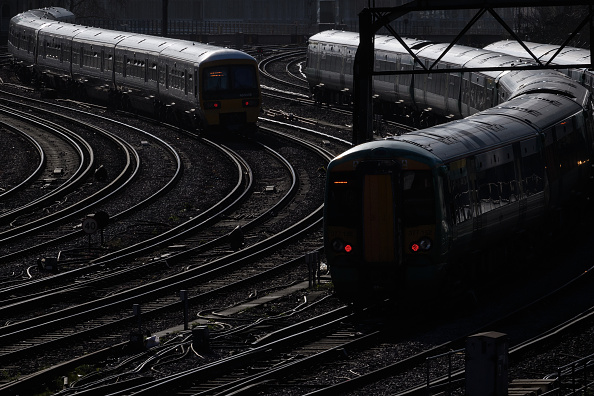Commuter misery: Regulated rail fares to rise by up to 5.9 per cent from next spring

Rail fares in England are set to surge as much as 5.9 per cent from spring next year, after calls for a fare freeze have fallen on deaf ears.
Regulated fares will go up from 5 March, with the Department for Transport calling this “the biggest-ever government intervention” in prices for train tickets.
It comes as commuters have been hit with disruption from strike action over the past few weeks, as well as facing delays and cancellations due to shortages of train crew this year.
Transport secretary Mark Harper said he was “capping the rise well below inflation to help reduce the impact on passengers.”
The increase is 6.4 percentage points lower than retail price index (RPI) metric that rises are typically based on, the government said on Thursday.
After a “difficult year” due to rising household bills across the country, minister Harper said the government did not “want to add to the problem.”
“This is a fair balance between the passengers who use our trains and the taxpayers who help pay for them,” he said.
The increase was a “kick in the teeth” for commuters who have been experiencing “endless strikes, chaos and disruption,” Liberal Democrat transport spokesperson Wera Hobhouse said.
“Season tickets will jump by hundreds of pounds and families will be left to fork out even more for train journeys in the middle of a cost of living crisis,” she added.
Commuters were “paying more for less” on the rail network as passengers are “lucky nowadays if the trains are actually running, let alone on time,” Hobhouse said.
Earlier this week, campaigners said that even a below-inflation increase to rail fares would be damaging for passengers and could see Brits shun train travel.
“After months of cancellations and delays to train services even a below inflation fare rise next April will come as a further blow to long-suffering passengers and could mean people stay away from the trains altogether,” according to Norman Baker from Campaign for Better Transport.
“We must be grateful for small mercies: it is clear that the increase could have been much worse,” Baker said, following news of the increase.
However, the rise “stands in stark contrast” to fuel duty, which was cut earlier this year after a four-year freeze, with the rail increase still set to deter some people from train travel.
Baker reiterated calls for a rail fare freeze, which he said could be funded by taxing fuel on domestic flights,” Baker said.
Commuters have faced chaos in recent weeks due to industrial action across the rail network.
Network Rail and train operators have walked out 12 times over the past six months as part of a long-standing dispute over pay and conditions.
Passenger numbers have lagged behind pre-pandemic numbers, by between 15 and 20 per cent, according to the latest government figures, thanks to home-working.
Commuting and business travel levels are 50 and 45 per cent behind 2019 levels, according to Network Rail data – resulting in the rail industry losing between £125m and £175m in revenue each month.
The TSSA echoed calls for a freeze with the union’s interim general secretary, Frank Ward, saying the “government has a nerve, spinning this as an intervention to keep fares down.”
Ward added: “The truth is that they’re increasing fares by a bigger percentage than they’re willing to offer nurses, firefighters or railworkers in pay. The only people who will benefit from this news are the rail companies who’re already making massive profits for their shareholders.